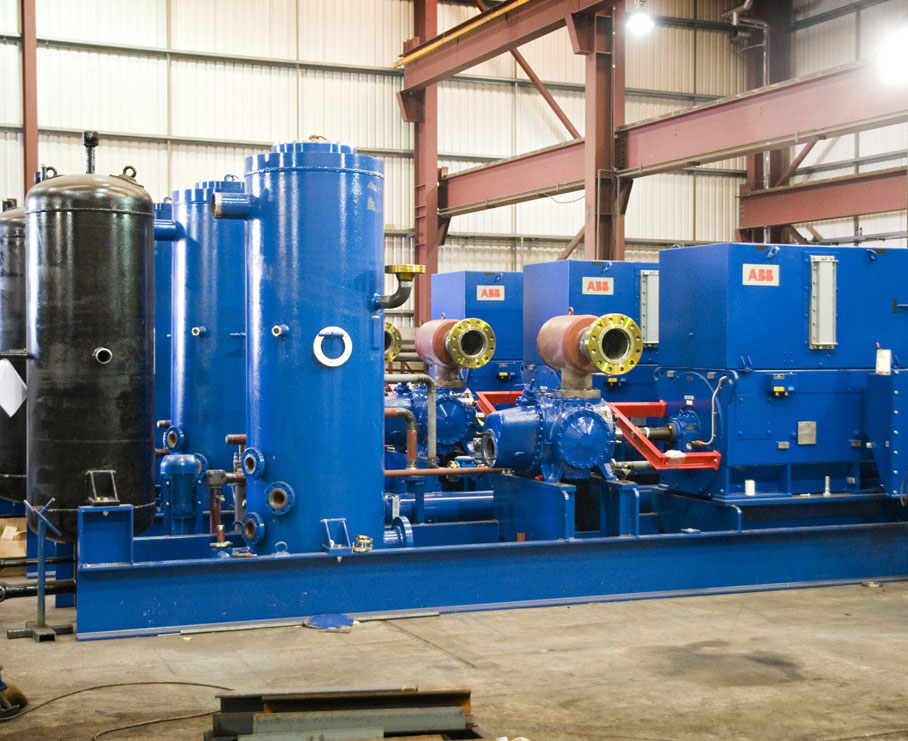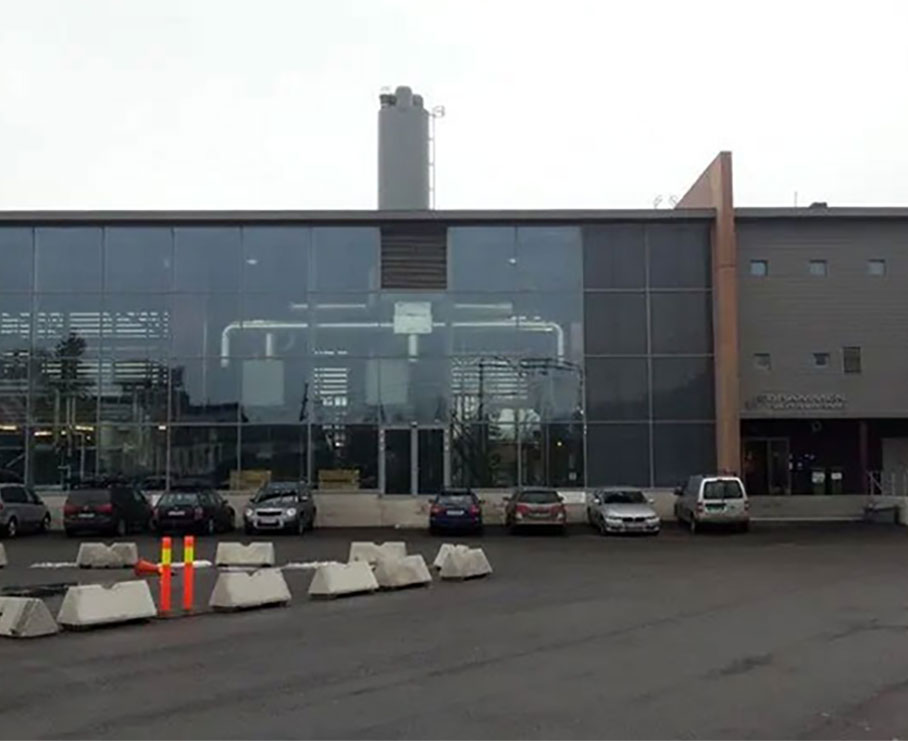The world’s largest 90°C natural heat pump for district heating
| Client | Drammen Fjernvarme | |||
| Equipment | Ammonia Heatpump | |||
| Location | Drammen, Norway |
Star Renewable Energy’s Neatpump extracts warmth from ice cold water. UK firm Star Renewable Energy has launched a groundbreaking sustainable heating system which is heating homes and businesses across an entire city in Norway. Heat pumps are becoming increasingly popular across Europe as the heat they deliver far exceeds the energy they consume. District heating sees heat generated in a centralised location distributed for residential and commercial heating. By 2009, the Norwegian city of Drammen’s population had grown to such a degree that its existing district heating system could not cope. While researching ways to expand its capacity, the city’s heating company Drammen Fjernvarme, led by Jon Ivar Bakk, discovered the water temperature in the fjord was ideal for heat pumps. Star Renewable Energy stood out amongst other bidders during the tender process, despite having no prior experience of water source heat pumps.
The Glasgow based company is best known for providing refrigeration systems to some of the UK’s biggest retailers, including Tesco and ASDA. As Director Dave Pearson says, “We were the new kids on the block, but we’ve always had a reputation for pushing boundaries.” District heat pumps already exist in Scandinavia and across Eastern and Central Europe, providing higher efficiencies than traditional localised boilers. However, many of these first generation systems rely on hydrofluorocarbon (HFC) refrigerants, which are thousands of times more potent as global warming gases than carbon dioxide when emitted to the atmosphere. HFCs are currently being phased out by the EU under the Montreal Protocol. Hence, Star’s selling point was simple – while other companies were using HFCs as the coolant, Star proposed using ammonia, a naturally occurring refrigerant with zero ozone depletion potential. Ammonia has never been used in a high temperature heat pump allocation of this type. Electricity for the Drammen system is provided by hydropower, making the Neatpump’s carbon emissions virtually zero. Star’s Neatpump is a renewable energy heat pump that extracts heat from seawater, air or any industrial waste stream, such as air conditioning or large scale cooling processes.
This waste heat is captured, compressed, boosted and recycled to provide hot water at up to 90°C for heating buildings on a massive scale. The project was completed in January 2011, and has since delivered over 15MW of heat for the Drammen community of 60,000 people. It is the world’s largest district-wide natural heat pump system and if it works in Drammen, it can work anywhere where there is a constant supply of water, standing or flowing. In the UK, Star is already working with local housing associations in Glasgow, and is also speaking with a dozen city councils, including Newcastle, Durham, Manchester and Stoke. It is also working on projects in Zurich and the south of France, and bidding for a system in Belgrade. The potential is huge – for example, the Thames could generate 1.25GW of capacity, enough to heat 500,000 homes. Dave Pearson says: “Systems such as the Neatpump could literally revolutionise the way we heat factories, hospitals, office buildings, data centres, even entire communities across the globe. The technology behind it is so advanced that it can even be configured to deliver district wide air conditioning, with waste heat providing the energy to drive desalination processes for producing fresh drinking water.” He adds; “At present, a shocking amount of heat generated through cooling processes worldwide is simply discarded as waste to the atmosphere.
Organisations could now be recycling waste heat from their process, air conditioning and IT cooling systems and boosting it for use in their own and neighbouring buildings.” Star’s heat pumps have been providing Drammen district heating with 85% of the hot water needed to heat the city. “We are very happy with it,” says Mr Bakk. Having already paid for itself, and with annual savings of around €2m a year and 1.5m tonnes of carbon – the equivalent of taking more than 300,000 cars off the road for a year – it’s not hard to see why. Star has invested heavily in zero carbon technology and continues to develop new products to provide energy conscious systems for the benefit of customers and the environment. Click here to view the full related article on the BBC website.
We are very happy with it. Having already paid for itself, and with savings to date of around €10m and 75,000 tonnes of carbon, it’s not hard to see why.
Jon Ivar Bakk, CEO of Drammen Fjernvarme AS



